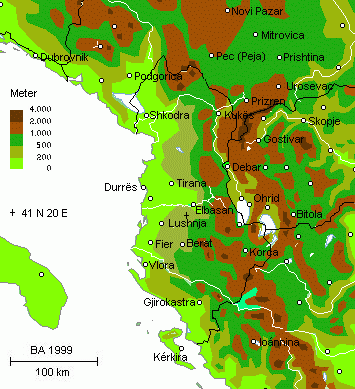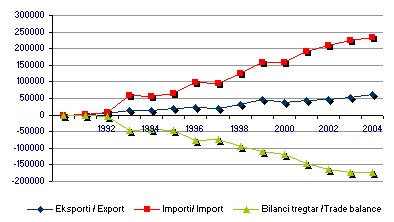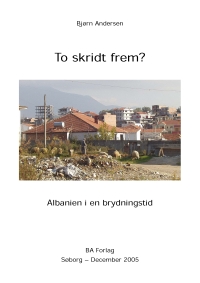Sidste Nyt fra Albanien, Kosóva og Makedonien
The Latest News from Albania, Kosóva and Macedonia
![]()
# 330 - 9' årgang - 12.01.2007
Version 1.1 • 14.01.2007
PDF for printing •
Info om »Sidste Nyt« •
Tidligere numre
![]()
Udgiver:
Bjørn Andersen
Publisher:
Bjoern Andersen

President Moisiu har haft besøg af Repræsentanter for det Internationale Samfund. Emnet var den aktuelle politiske krise, striden mellem Regeringen og Oppositionen om hvornår og hvordan lokalvalgene skal foregå. Striden viser at der stadig er lang vej igen før det Albanske demokrati fungerer på en teknisk fornuftig måde.
























